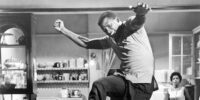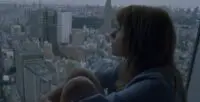There’s nothing more common than a dysfunctional family. Probe or profile any given pack of relatives and one finds a slice of Americana pizza that can have any number of toppings and styles. For Family Squares, its messy and delicious dinner is cut Chicago tavern-style into squares, thanks to the grid view of a Zoom call during our pandemic times. Just like folks who prefer their pizza cut into wedges and could never imagine the oddity of squares, viewers are going to look at these loud, pixelated boxes with squawking people and find some welcome and cathartic weirdness.
TV director Stephanie Laing (Physical) enlisted a very affable and talented ensemble to represent the Worth family scattered across the country and separated by the COVID-19 pandemic. The likes of Eighth Grade’s Elsie Fisher, comediennes Judy Greer and Casey Wilson, and titan character actresses Margo Martindale and Ann Dowd join the male smiles of Game Night’s Billy Magnussen, The Mick’s Scott MacArthur, Veep’s Timothy Simons, and beloved favorite Henry Winkler. Each pop into Family Squares’ opening group call to exchange greetings and fumble with their technical settings, much to the chagrin of the morbid reason they have assembled.
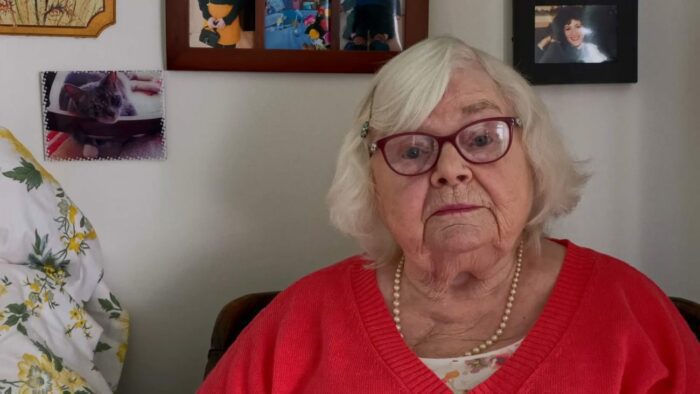
The Worth’s grande dame Mabel, played by 92-year-old Nebraska Oscar nominee June Squibb, is lying in bed with her bucket lined up to be kicked by the Grim Reaper. Her hospice nurse (Zoe Chao of HBO Max’s Love Life) has invited Mabel’s extended family to the shared virtual place so that they can essentially be as present as possible until her last breath. What should be a solemn moment of gracious departure and loving unity is undone by audio-drowning blubbering, upstaging blurts, and constant “Wait, is she dead yet?” confusion from reception lags and splintered visibility. Jeez, imagine saying goodbye like this; little dignity and with empathy limited to “I wish it was different circumstances.” What an inglorious way to go out!
Zoom, Google Meet, and FaceTime may keep us connected better than an old-fashioned vision-less phone call. However, they are appallingly chaotic for large gatherings. The technology amplifies dysfunction. It severely displays people’s best and worst qualities right alongside the mercy of their internet speed and lighting. Each collected webcam view puts inescapable spotlights on introverts and extroverts alike, complete with their telling facial expressions and body language. We see who wants to dominate conversation and who’s uncomfortable and hanging back. We see the patient, the distracted, the greedy, those that show off, and those that cower. All of it is splashed across one screen and played live.
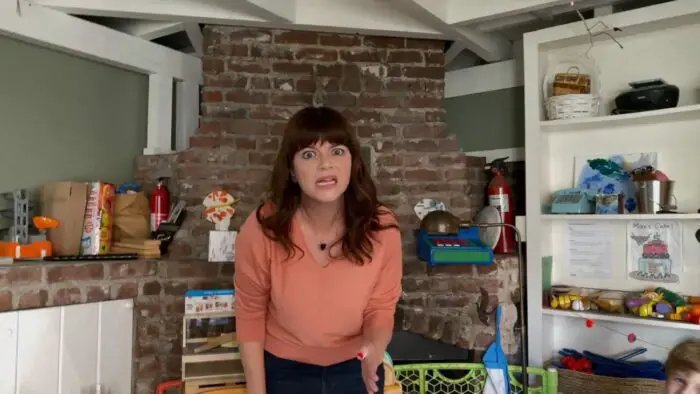
From the very first Zoom scene and onward, viewers can assign who’s who when it comes to those aforementioned character traits and insecurities. In doing so, Family Squares cinematographer Kevin Atkinson (A Futile and Stupid Gesture) extends past the boundaries of video conferencing and its flubs with camera work on sets revealing little side angles and peeks into the rooms and homes beyond the computer screens. Following that effort, the characters thrust into a digital arena challenging their tolerance levels and cordiality are granted revelatory personal moments when the web windows close. Through all of the juggled delegation and self-serving requests, the kin begin to show their true colors, reveal unspoken secrets, settle old scores, and fumble with the proper bonding which would help everyone heal the sudden grief.
Family Squares plays within that limited space quite nicely. Among this cast, the youngest member fairs the best among the veterans flaunting the gallows humor. With the clarity and honesty of youth on her side, Elsie Fisher’s granddaughter steps forward to be the wisest and most genuine one of the bunch. She is a welcome emotional lift that balances the silly situational hijinks that were constructed by Laing and her co-writer Brad Morris (Cougar Town). Much of Family Squares, especially the components steered by Greer and Martindale, occupy little schemes that try to expand a concept that, for many, wouldn’t last longer than a short film of that first scene on Mabel’s deathbed.
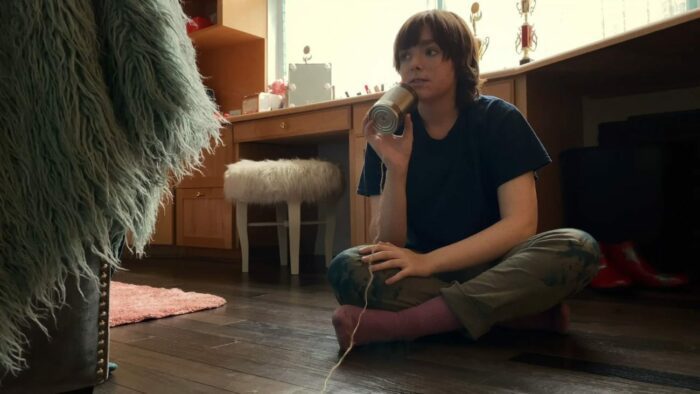
Family Squares narrator Rob Reiner (a nice get for Laing) drops this classic George Burns quote during a transition and it couldn’t be more true in many regards:
“Happiness is having a large, caring, close-knit family in another city.”
Distance is a benefit. All of the squabbling seen here would be far worse if it was more in-person. That said, even long-distance dysfunctional family dynamics prove to be strong. No matter what’s said in the streaming blow-ups of the movie, the Worths are connected by more than, as one character jokes, “God, the internet, and plumbing.”
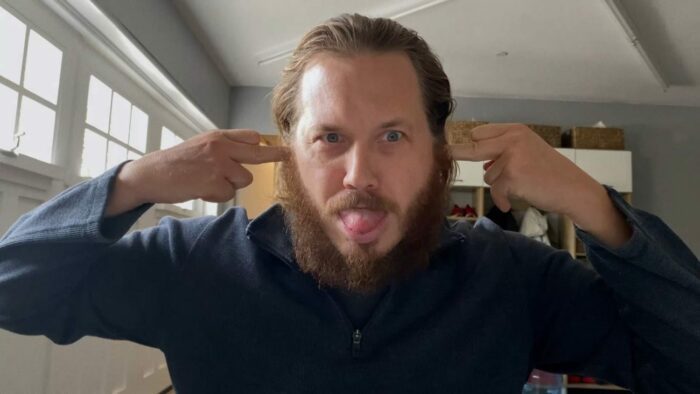
While Family Squares is respectfully dedicated to all those who have lost someone during this awful pandemic, Laing’s movie allows us some much-needed, profanity-laced laughs. Playing out a dramedy fitting and formed by our current plight, the movie can be seen as a future time capsule for our shared mini-era. Not all the tangents work or are worthwhile, but the salute to collective solidarity is there.


